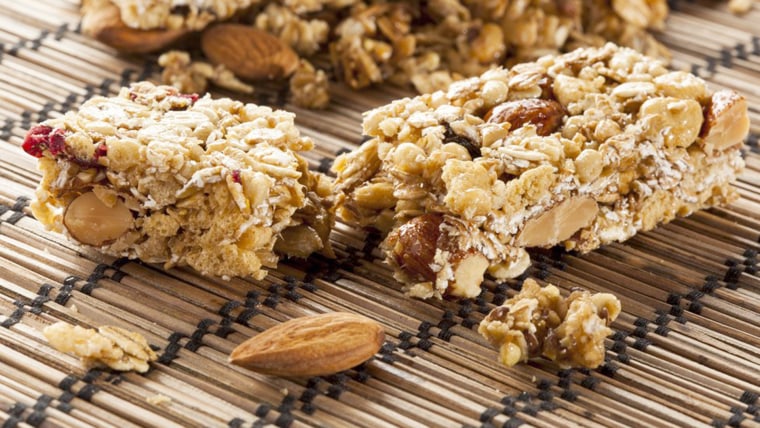Grabbing a snack? Better not go overboard on the exercise bars and fitness foods.

A new study says we overeat our favorite treats if they come packaged with a healthy label.
What’s more — eating foods labeled healthy makes some people less likely to exercise.
“It is a little bit alarming,” Leslie Bonci, director of sports nutrition at UPMC Center for Sports Medicine in Pittsburgh. Though Bonci was not involved in the study, it confirms what she already knows about people skipping workouts after a healthy nosh. “People felt like they did something good for themselves [and think] ‘I don’t need to exercise.’”
7 steps to clean eating: It's easier than you think
Bonci says the new study, like others before it, proves that marketing affects people’s eating habits.
The research also provides new information about the relationship between eating habits and exercise, says Jörg Königstorfer, a professor at Technische Universität München and an author of the study.
“This is the first research paper that shows that fitness branding of food does not only affect energy intake but also energy expenditure,” Königstorfer tells TODAY via email. “This is surprising since restrained eaters should be particularly interested in avoiding and burning off excess calories.”
Königstorfer wanted to examine how marketing and branding impacted the way people ate and exercised. He designed three studies to look at how people consume products labeled at fitness or health foods.
The first study separated 162 participants into two categories — those who were concerned about their weight and regularly restrained their eating, and those who were not concerned about their weight. All participants were asked to sample two kinds of allegedly new trail mixes, and to then give their opinion of the products. The first product was labeled “Trail Mix,” and the second “Healthy Trail Mix.” Researchers found that those who regularly restrained their eating actually consumed more of the allegedly healthier trail mix.
In the second study, the researchers told half of the 231 participants that the trail mix was a permitted food, meaning it did not interfere with weight loss. They told the other half the trail mix was forbidden. When restrained eaters believed they were eating permitted foods, they consumed more than their peers who believed the trail mix was forbidden.
5 ways to cut calories so easy you won't even notice
In the final study, 145 participants ate snacks labeled either “Diet Trail Mix” or regular trail mix and were then asked to workout. Restrained eaters who ate the diet trail mix exercised less than those who ate the regular trail mix.
The results were clear, says Königstorfer. “Fitness-branded food decreases physical activity for restrained eaters, even after they have consumed more food than unrestrained eaters,” he writes.
Now that we know a product’s packaging and marketing play such a powerful role in how we eat and behave, what can healthy-minded snackers do?
Be aware: fitness foods are fine, but don't overindulge.
“Anything can be appropriate if you are eating it in the [serving size] on the label,” says Bonci.